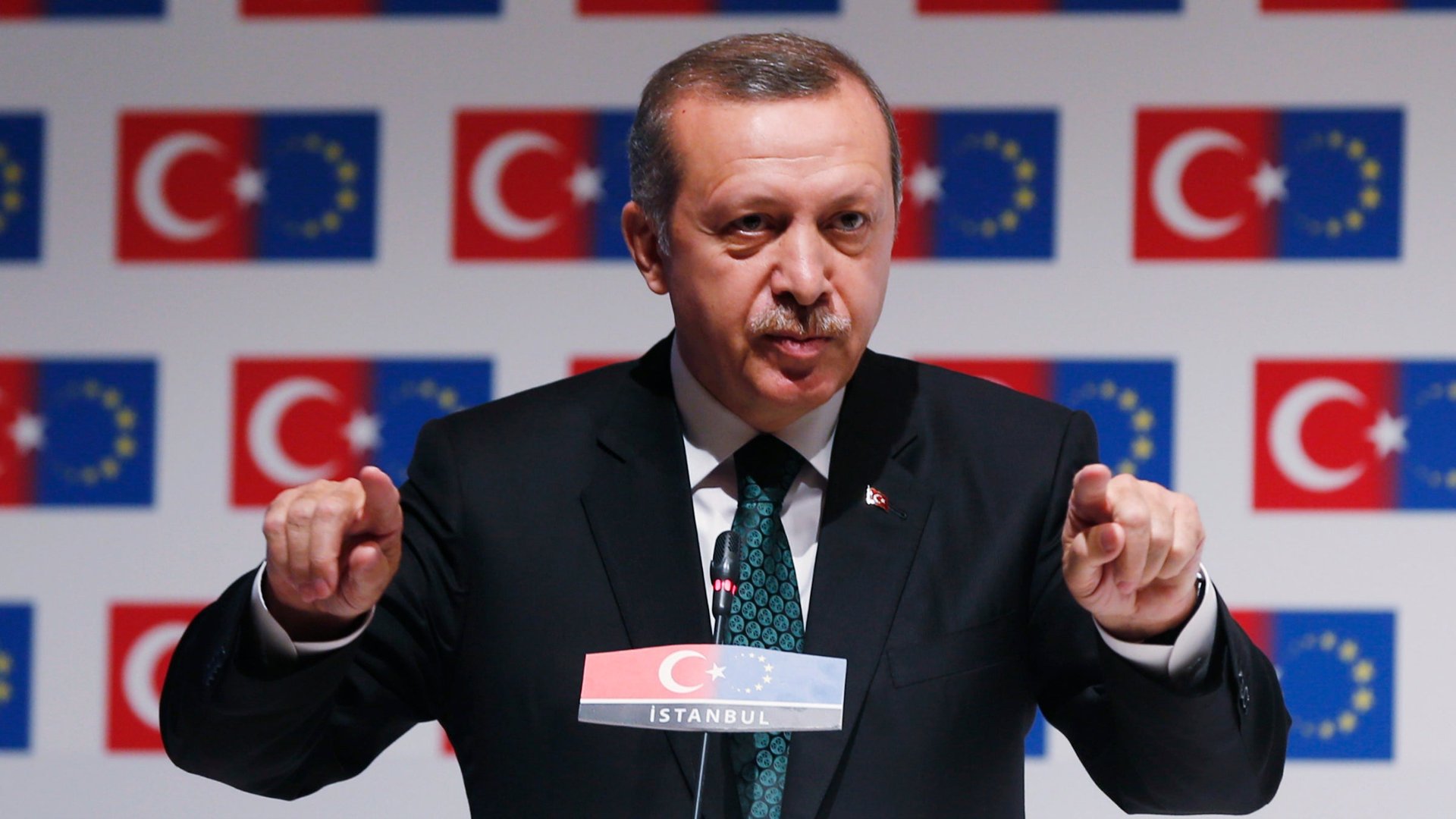A formal EU membership wouldn’t mean much for Turkey’s economy
The European Union’s accession process for new member states is known to be a long and complex one. With Turkey, talks have been going on since 2005, and both parties are still far from finding a solution.


The European Union’s accession process for new member states is known to be a long and complex one. With Turkey, talks have been going on since 2005, and both parties are still far from finding a solution.
For Orhan Kocagöz, an economist specializing on Turkey’s economy, joining the EU would only be of political and symbolic meaning for Turkey.
“There are hardly economic advantages for Turkey to join the EU,” said Kocagöz. The country’s BB+ credit rating would certainly improve, but investors are already pretty confident in Turkey and the economic relations already connecting Turkey with the EU.
Even without being a EU member state, Turkey currently receives €1.8 billion ($2.3 billion) in aid money every year to prepare it for membership, according to the Delegation of the European Union to Turkey.
In the last seven years, trade between Turkey and the EU has gone down from 67% to 39%, due to the fact that Turkey has grown and diversified its export markets, said Kocagöz.
This year, Turkey’s economy is expected to grow by 3.4% and economists say the country might be too big to be integrated in the EU.
Meanwhile, Turks have become less interested in the EU. According to a survey conducted by Bosphorus University in February, nearly 50% of the respondents said they have a positive view of the EU, which is a 20% decrease from 10 years ago.
Vincent Morelli, Section Research Manager of the Congressional Research Service, described the Turkish mindset in a report from January 2013:
For average Turks, EU membership seems to be becoming more irrelevant as Turkey’s economy continues to thrive and as Ankara continues to reposition and strengthen itself in its own neighborhood between secular Europe and the Islamist emergence in the Middle East.
Still, there is no deadline for the EU accession process. It can go on for years, and for now, Turkey will continuously receive aid money.
With the recent riots, the question is where Turkey will move forward as a country. Conservative Prime Minister Erdogan had a lot of support in the 2011 elections, but with his harsh reaction following the first protests and his unwillingness to look for compromises, he’s brought forth more opposition, and not just in Turkey.
If Erdogan’s government can’t figure out a way to find a political solution, Turkey’s middle class might see the EU as a chance for a new political framework. For many Turks, they may have reached a point when strong economic growth no longer justifies that Erdogan remain prime minister.
Meanwhile, talks between the EU and Turkey planned for this summer were postponed to fall.